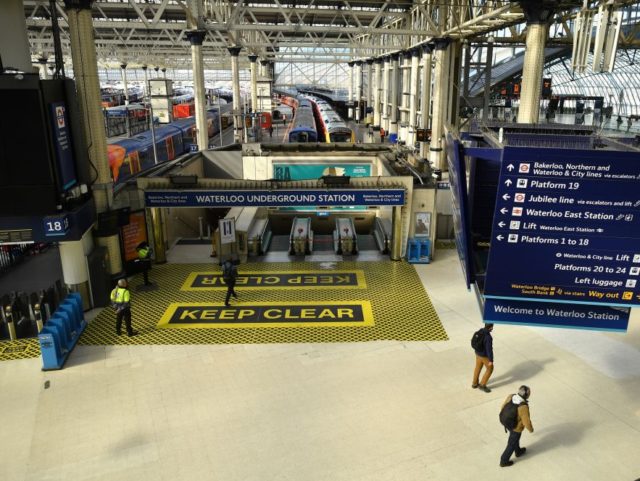The United Kingdom’s train operating companies (TOCs) pushed services to 70% of the regular timetable Monday, but enforced social distancing means the equivalent to just 10% of the normal capacity of passengers will be able to travel.
While the number of journeys on Britain’s National Rail Network has fallen to four per cent of normal levels in the wake of the government’s police-enforced coronavirus lockdown, the number of daily trains operating had remained reasonably high, allowing those who still need to travel to do so in near-total isolation.
Following Boris Johnson’s instruction to the nation last week to get back to work where possible, the capacity of the network has again ramped up, with 70 per cent of normal services — equivalent to a normal weekend service in non-coronavirus times — now running on weekdays.
Yet that growth in theoretical capacity will not allow a great increase in the number of travellers, however, as the normally crowded train carriages are to be kept nearly empty even during peak times, with officers of the British Transport Police on hand at major railway stations to enforce the change, Britain’s Guardian newspaper reports. While the number of travellers could now double from its new coronavirus low, actual working capacity will be around 10% of normal, with Britain’s network of lines and services operated for a tiny minority of people.
In the case of TOC Avanti West Coast, on their peak time services, this means carriages could not be any more than one-third full. Given that many trains in normal times run well over maximum capacity — standing room only — this one-third of seats occupied only mode will mean a huge fall in revenue for operators.
So far, the fall in passenger numbers have been paid for by the government, a barely-noticed stealth nationalisation of the industry that has attracted little attention in the national press. Despite the huge cost to the taxpayer of the move, there remains a lack of clarity over how precisely the government will withdraw from this arrangement, if and when passenger numbers should recover.
The BBC reports stations now have crowd barriers and security guards in place to prevent passengers boarding trains that are already too ‘crowded’, with intercity trains now running as reservation only. At Euston Station, the 1960s modernist concrete slab that controversially replaced an earlier Victorian station and is itself in the process of again being replaced, the various entrances are now set up with folding barriers, allowing staff to control access to the building quickly.

COMMENTS
Please let us know if you're having issues with commenting.